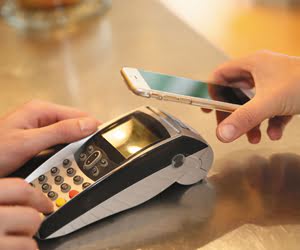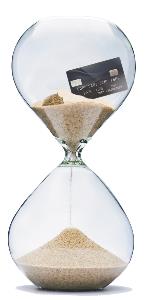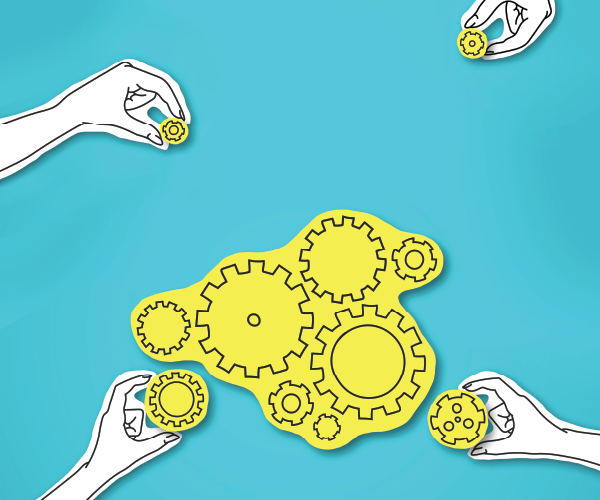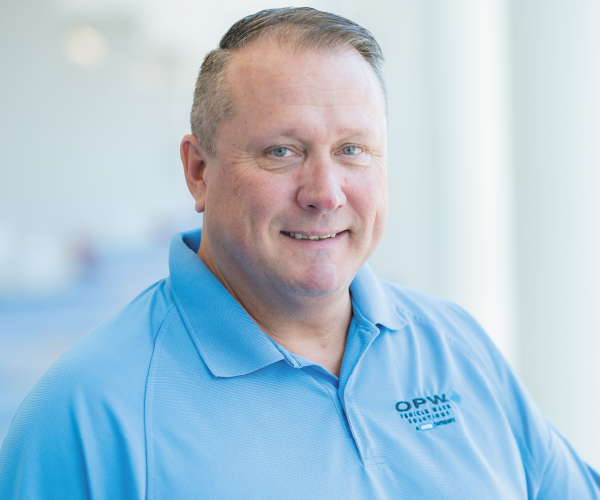
Payments and Payment Trends
November 20, 2018
9 minute ReadClay Wilson, CEO and Owner of Lone Star Car Wash Systems, has been around long enough to see the car wash industry go from a cash business to one with a dizzying array of POS options. “If there’s a benefit to the industry trend toward private equity groups coming in, it’s the standardization of technology,” Wilson said.
Today’s bevy of POS options can do a lot more than process a credit card or accept cash. Many can also track inventory and alert operators when supplies are running low. They can manage membership clubs, loyalty rewards, coupons and gift cards, and issue automatic charges for monthly plans. A sophisticated POS can generate customer lists and communicate with customers via text message.
The options can be overwhelming. Two years ago, when she was new to the field, WashCard marketing representative Amy Olson first encountered the wide world of car wash POS technology while walking the floor at a trade show. She was gobsmacked.
“It’s a whirlwind out there,” she said. “It took me a while before I had a grasp on it.”
Today, Olson has more than a grasp. WashCard opened its doors 30 years ago, with an emphasis on loyalty programs and now, the company makes not only the hardware and software to accept secure mobile payments, but also to handle promotions, rewards programs and membership options, and to customize the loyalty card to each operation.
Choosing the right POS system means doing a good deal of research and legwork. “If you came to [Lone Star] wanting to build a new wash we’re going to show you our POS options and give you a quote and figure out what best fits your needs,” Wilson said. “Any reputable dealer who has experience in the area – and we’re far from the only ones out there – will tell you to look closely at the hidden fees.”
Some examples of hidden fees? RFID tags, credit card processing and emergency shut-off systems in case customer data is compromised, to name a few.
Taryn Chmielowicz, vice president of marketing at DRB Systems, recommends that wash operators looking for a new POS solution match their business model to the POS that most fully supports it. Operators should get familiar with the paystation or kiosk user experience to determine if it’s a good fit with their wash’s demographic.
It’s also worthwhile, said Chmielowicz, to ask the POS company about updates and improvements to the software, how often they’re done and how seamlessly they’re implemented.
Ultimately, it’s up to the operator to determine how to best utilize the technology for his or her business. “We have operators who are very hands-on and want to control the loyalty card and how it’s used, and then we have operators who just want it set up and working, that’s it,” Olson said.
Trends toward mobile, membership
Across major industries, experts are seeing major shifts in payment behavior and technology, starting with an increasing attraction on the part of customers toward an enhanced consumer experience, with individually targeted products and rewards that are delivered almost as soon as they are earned. Generation Z, the generation that follows Millenials, will comprise 40 percent of the U.S. consumer base in 2020; they’ve never known life without Google, and they’re growing up in step with peer-to-peer e-wallet options like Apple Pay, Venmo and Square.
But it’s not only Generation Z that’s driving a shift toward mobile payments. According to the 2018 How We Will Pay study, conducted by VISA and PYMNTS.com, consumers own 4.4 devices, on average, and only 16 percent of adults over the age of 18 in the U.S. do not own a smartphone. More consumers than ever report that they would prefer a contactless payment experience in a physical store to eliminate checkout friction and save time.
“There are early adopters who love tech, and they’re going to pull not only our vertical toward mobile payment, but also all the others,” said Brehm. “We’re already seeing it happen. You can go online, download an app, order food from your favorite restaurant and show up to pick it up, all without interacting with a person.”
Two years ago, smartphones were limited in memory. There wasn’t room to download and use dozens of different apps – they took up too much space. But now increased storage comes standard with new smartphones, and apps are more and more prevalent
“The biggest change we’re seeing in the industry is the prevalence of using mobile apps to take payment,” said Olson. “Customers see an app as a marker of status for the business.”
Many industries, too, are shifting away from one-time purchase business models and toward loyalty and membership programs designed to keep customers coming back and automatic deposits coming in. Netflix, Salesforce, the Apple iPhone Upgrade program, Spotify, and ZipCar are just a few examples. Another prime example is Costco, which prices goods at the cost of the item plus the cost of overhead – a minimal markup – and profits almost entirely from membership fees.
So what does all of this mean for car washes?
Harold Guthrie, sales operations manager with DRB Systems, has been in the car wash payments industry for 24 years, and while he recognizes the immense potential of the membership model, he doesn’t see all roads leading there exclusively.
“In the old days we spent a good bit of our marketing dollars on gift cards and ticket books,” Guthrie said. “Today a lot of people are spending more of their marketing dollars on monthly passes. Today in Ohio, it’s pouring rain and it’s the first of the month, so a lot of washes are getting deposits in their accounts even though they might not wash a car today. For both the wash and the user, the membership model is a good thing.”
However, he said, DRB’s own research has confirmed that car washing is still very much an impulse thing for many customers. “They get an itch, they buy a wash. There are still a lot of people who only wash their car once a year – they’re not going to buy a membership,” Guthrie said.
At the same time, DRB’s studies have also proven that there’s been an increase in numbers of people who want to wash frequently, which means the potential audience for monthly passes is growing.
Detroit, he says, is a good example of an area that’s shown a lot of flux in recent history, in terms of penetrating the membership market. During economic hard times, when customers’ wallets are getting hit, they’re unlikely to sign up for a monthly membership – to anything. “But now Detroit is recovering and people are starting to sign up,” Guthrie said.
Chmielowicz noted the membership model of payment as a mirror of what’s happening in every major industry, including media outlets and wine clubs.
“Generally speaking, the subscription model is becoming so much more widely used in every industry,” said Chmielowicz. “There’s no reason to believe it wouldn’t work for car washes. But pay-as-you-go will always be around.”
The need to accommodate a variety of customers – monthly members and one-time customers and everything in between – mirrors another challenge for POS technology in this time of shifting payment trends: what kinds of payments to accept, and how.
“Years ago, the car wash industry was heavy in cash and moved slowly toward credit cards, like everyone else. Now, we’re seeing a shift to chip reading technology and more mobile wallet payments,” Guthrie said.
Despite the dramatic rise in mobile payment use – Worldpay predicts mobile payments will surpass credit card payments in 2020 – there are still plenty of consumers out there writing checks and carrying cold hard cash.
A few of DRB’s machines don’t accept cash – these work well in member-only lanes, for example – but most accept and dispense bills. Fewer and fewer deal with coins, however.
“Dollar bill accepting and dispensing is still widespread, but the same isn’t true for coins,” said Jeremy Brehm, payments manager at DRB Systems and Unitec. Brehm said that even customers who still use bills tend not to carry coins, so washes can price their products with even dollar amounts and dispense with POS systems that accept coins.
At WashCard, Olson is in regular talks with operators who not only still accept cash, but don’t offer any credit card or mobile pay options at all; these washes are primarily operating in smaller towns with customer demographics of people in their 60s, said Olson. “They’re worried about losing loyal customers,” Olson said. “But they’re likely already losing new business, because more and more people no longer carry cash.”
And once a credit card reader is installed at a car wash, she said, about 70-80 percent of the wash’s business converts from cash to credit card – and customers start spending a lot more money.
Wilson has had the same experience. “Even in a self-service car wash or pet wash, if you swipe your card instead of putting in quarters, the time’s counting, so their ticket average rises,” he said.
From his vantage point on the front lines of the payment evolution, and with a vested interest in helping wash operators keep existing customers as well as entice new ones, Guthrie warned against an exclusive shift away from cold hard cash. “I believe in offering customers as many ways to pay as exist,” he said.

EMV Compliance
What’s Taking So Long?
It’s been more than three years since the major credit card companies set a deadline for retailers to swap their payment processors for chip-reading ones – but about a third of all retailers have yet to do so.
EMV compliance – EMV stands for Europay, Mastercard and Visa – is meant to ensure that customer banking information is secure, and shifts the responsibility to the retailer to pay the costs if non-chip-reading systems are hacked. Chip cards are more secure because they create a new transaction code each time they’re used, which means even if a hacker manages to puall the information from a purchase, that information will be declined the next time it’s used.
By contrast, the information stored in a card’s magnetic strip can be duplicated and used to make purchases over and over again.
Retailers who haven’t upgraded blame the steep cost of changing out their machines, as well as delays in obtaining certification for the machines, which is also required. Big businesses have mostly upgraded, but some small businesses are holding out, and taking the risk of a big hit if their customer data is compromised.
The chip readers themselves are limited in cost – from $100 to $500, about the same as the old-style swipe machines. But there are fees associated with new computer software, register connectors and certification, which more than double that estimate. Many retailers have purchased the new readers but are still waiting for the credit card companies to install and certify them, which is why customers might see a chip-reader that doesn’t yet take the chip.
To be clear, the deadline doesn’t mean that all retailers must have chip-readers installed – it’s a “liability shift,” according to the credit card companies, which means that after the deadline, retailers who choose not to install chip readers are held accountable for any fraud that happens with the less secure technology.
According to Visa, in-store fraud dropped 70 percent between December of 2015 and September of 2017, as the percentage of merchants with chip readers increased.
Stores with big-ticket items were the first to switch to the EMV system. Businesses that traffic in small purchases – car washes included – tend to have a lower fraud risk, so they’ve been slower to transition. Many are waiting, and taking the risk, until their current technology is unusable, and they’re forced to upgrade either way.








